Huawei P8 review: Does Huawei's flagship ascend above all others?
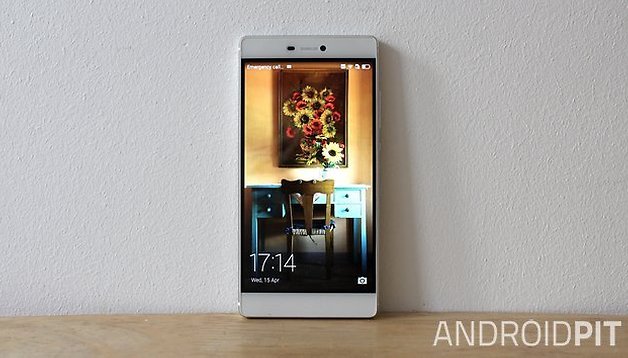

Huawei's confident march into western smartphone markets continues with the Huawei P8 - a top-end device that would be a guaranteed hit were brand recognition not so important to a smartphone's success. With the Ascend Mate 7 and the Ascend P7, Huawei proved that it can mix it up with the best phones from more established manufacturers, all the while donning lower price tags.
The Huawei P8 (not Huawei Ascend P8, as was previously rumored) has made improvements on its predecessors in terms of both design and power, while not making huge leaps with its software and UI. Read our Huawei P8 review to find out everything you need about this powerful phone's hardware, software, price, specs, release date, and more.
Good
- Sharp, super-slim design
- Camera has some fun features
- Long-lasting battery
- Powerful processor among the fastest around
Bad
- UI doesn't take full advantage of Lollipop.
- Colors on camera can be a bit washed out
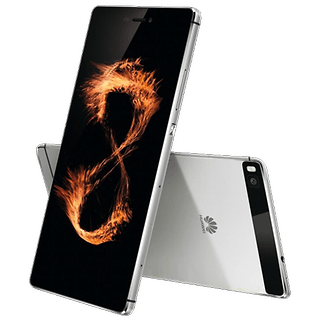
Huawei P8 release date and price
The phone will launch in the UK and Europe throughout late April and early May, with no Huawei P8 release date planned for the US yet. The Huawei P8 price is set at 499 EUR (359 GBP) for the standard version and 599 EUR (431 GBP) for the premium version. Other prices are still to be confirmed, but we know that the Huawei P8 will have 32 GB of internal storage, with a microSD slot allowing for an extra 128 GB.
Buy Now: Huawei P8 from Amazon.co.uk from £500.38 | Amazon.com from $377
Huawei P8 design and build quality
The Huawei P8 moves away from the all-glass design of its predecessor, the Ascend P7, taking things in a more metallic direction. The back and sides of the phone are made of aluminum, while the front is covered in Gorilla Glass 4 with plastic underneath. The mostly metal chassis gives the phone a satisfying weightiness despite it being a mere 6.4mm thin - which makes it one of the skinniest flagship smartphones available.
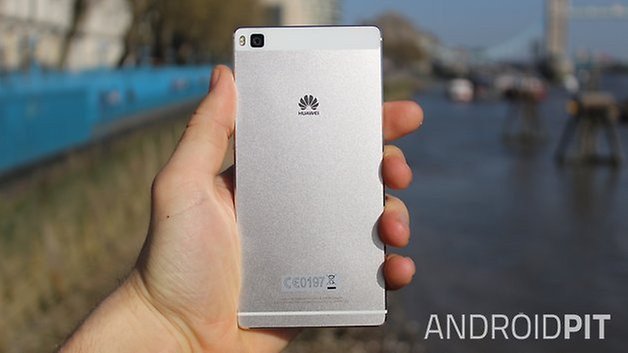
The P8 follows the angular, slate-like design philosophy of its predecessor, which it also shares with the Xperia Z-series. Everyone loves a nice slim side-bezel, and the P8 does a great job in this regard. We received the 'Mystic Champagne' model of the Huawei P8, which is more a bright platinum color than the gold you'd expect from its name. The phone is also available in Titanium Grey, which we think doesn't compliment the phone's design as much as the gold model.
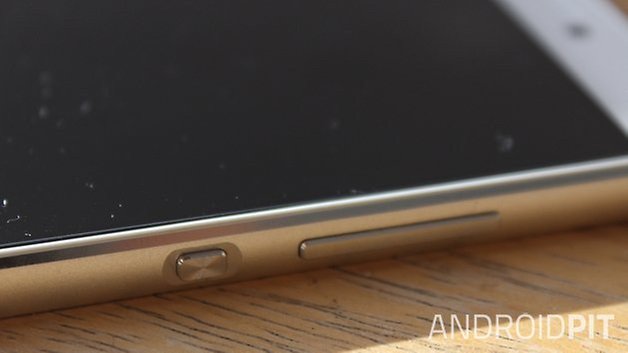
The sides of the P8 have snappy tapered edges, which are glossier and more reflective than the rest of the chassis. Suffice to say they look fantastic. On the back of the P8 is a 13MP camera with dual LED flash – offset in the top corner – and a thin plastic antenna strip running across the bottom. The camera sensor is surrounded by a glossy plastic strip, which helps further improve signal quality in the P8. Most crucially of all, in our opinion, the camera sits flush with the back of the phone, avoiding the protruding 'nipple' problems of the HTC One M9 and Galaxy S6.
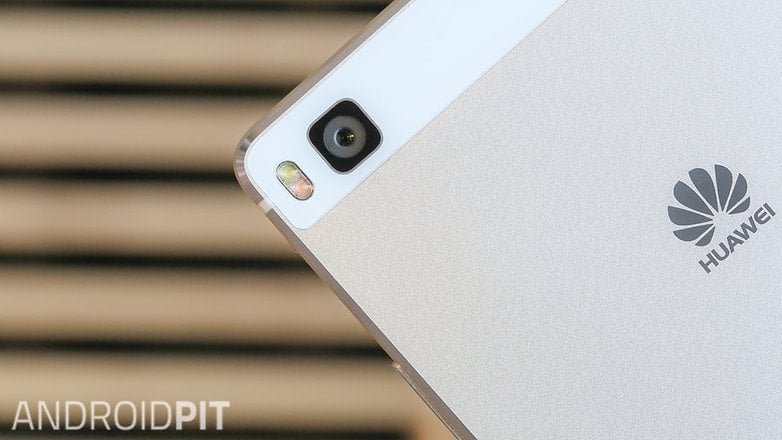
The volume rocker, standby button, SIM card slot and microSD slot (which, interestingly, also doubles as a second SIM card slot) are all on the right side of the phone, leaving the left side completely smooth. We particularly like the small textured detail on the standby button, and the fact that there are small 'dips' in the chassis leading down to it. This helps distinguish it from the volume buttons above it, hopefully leading to less instances of mis-pressed buttons.
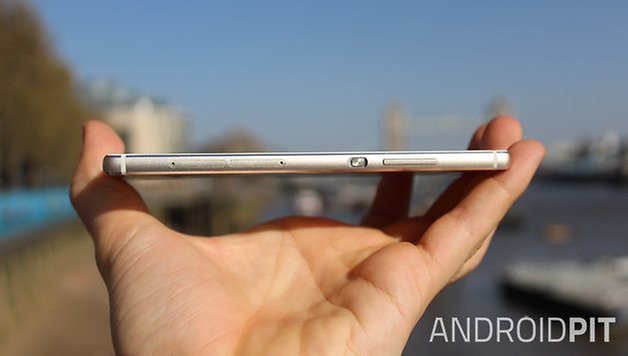
On the bottom of the phone is a microUSB port and two speaker grills, while the top of the phone houses an audio jack.
The P8 has a very solid design - a bit more understated than the HTC One M9 and Galaxy S6, both of which scream 'luxury'. Not everyone wants a phone that will draw 'oohs', 'aahs', and unwanted attention, however, and the P8 - while still very elegant - may be better suited to such buyers.
Huawei P8 display
At 5.2 inches, the Huawei P8 display fits in the upper region of what seems to have become the sweet spot for flagship phone screen sizes.
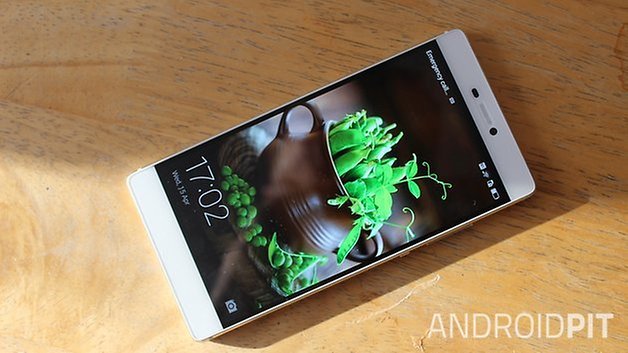
The P8 has a 1920 x 1080 IPS-LCD screen, which gives it an ever-so-slightly fewer pixels-per-inch (424) than its smaller-screened predecessor (445 PPI). It does, however, have a higher screen-body ratio of 78.3 percent.
Picture quality is crisp, colors vivid, and viewing angles are pretty much flawless. While there is a craving for QHD displays at the moment, we’re quite happy with the Full HD display on the P8, provided the phone comes in at Huawei’s usual just-below-flagship price.
Huawei P8 special features
According to Huawei, one of the big advantages of a Kirin chipset is the fact that it's designed with networking and connectivity in mind. To this end, one of the the Huawei P8 special features which impressed us can calculate network speeds of your nearby mobile data and WiFi networks, and lets you know if you can gain faster internet speeds by switching from one to the other. You can, of course, turn this feature off.
The Huawei P8 features two independently-operating antennae at the top and bottom of the phone. These mean that the P8 is exceptionally quick at seeking out and changing masts to make sure you're always receiving the best signal. So if you're in a train and moving fast between areas (and having your signal cut off in tunnels), the P8 is fast to adapt. We tested this out on a train journey ourselves, and can verify that switching mobile signal and data connection is faster than in the Nexus 6.
Huawei P8 software
On the Huawei P8 software front, we tested it running Android Lollipop with EMUI 3.1, which will be very familiar to owners of the Huawei Ascend Mate 7 running Emui 3.0. It's a clean, slick interface that naturally contained Material Design touches – such as the navigation buttons, bright colors and sliders to toggle options – even when it ran on KitKat. The timeline running down the left side of the notifications menu is a deft touch.
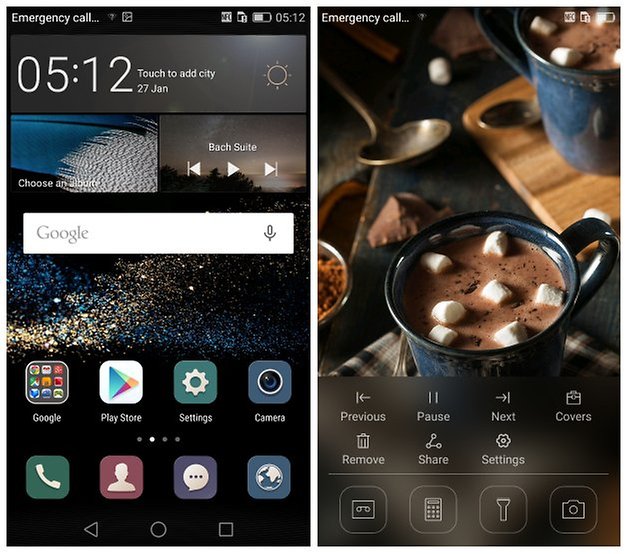
That being said, EMUI also doesn't use some of our favorite Lollipop features. Pressing the 'Recent Apps' button doesn't show apps in the neat card view, for example, and swiping down the the notifications bar twice doesn't bring up the quick settings menu. Smart Lock is more limited too, and doesn't let you choose locations where you don't need to enter a PIN code.
Some may be a bit thrown off by the lack of an app drawer, but this is something that isn't too hard to acclimatize to, particularly as you can grab free themes from Huawei's Themes app which let you bring it back.
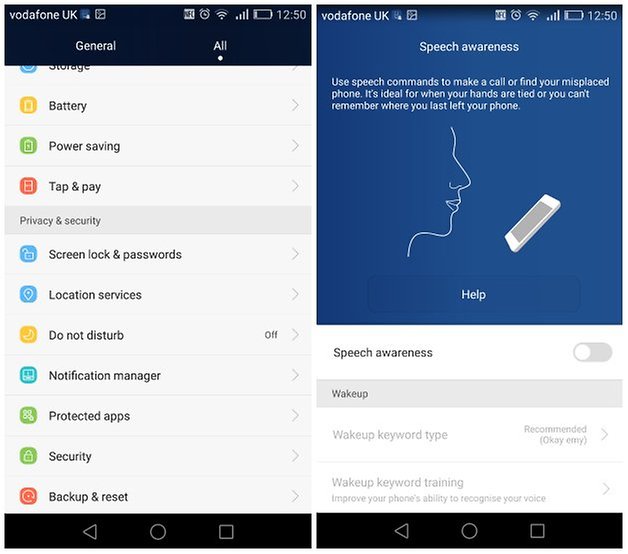
Huawei is great at keeping its interfaces bloat-free, and continues this trend with the P8, which has a pleasant lack of superfluous apps, and features a few that are actually quite handy. The 'Speech awareness' feature, for example, is Huawei's answer to Google Now, letting you make phone calls with your voice. With this feature, you can also call out "Buddy, where are you?" for your phone, and it will start ringing and saying "I'm here", sounding like some kind of malevolent doll in a horror film.
Huawei P8 performance
Running an octa-core 64-bit Kirin 930 chipset with Cortex-Ad53E cores clocked to 2GHz, the Huawei P8 specs mix it up among the most powerful phones on the market. Our benchmark tests with AnTuTu had the Huawei P8 performance outdoing the Galaxy Note 4, among many others. If the Ascend Mate 7 didn't already prove that Huawei's HiSilicon chipsets can compete with the Snapdragons and Exynoses of the world, then the P8 definitely does.
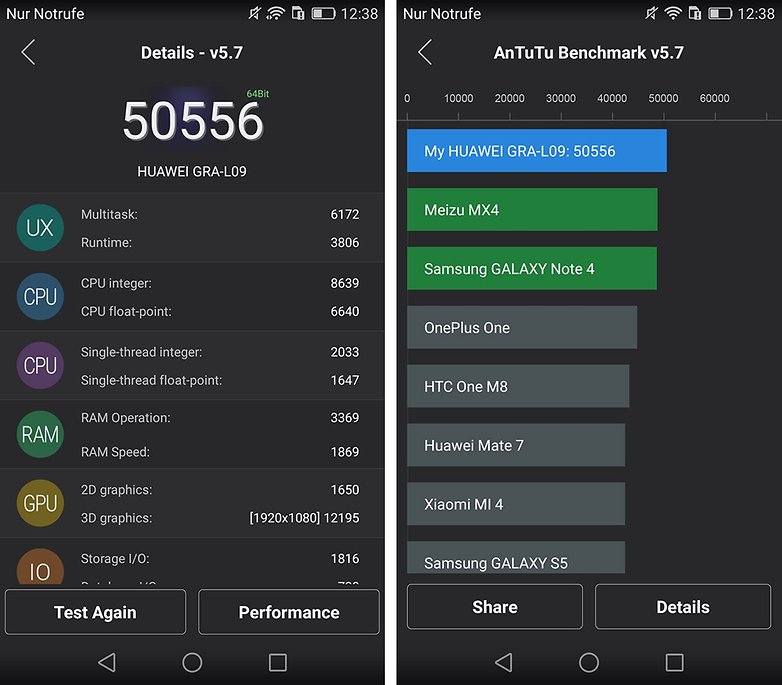
We experienced a little bit of jerkiness with the Huawei lockscreen, but other than that we have no complaints about the Huawei P8 performance. Graphically demanding games like Dead Trigger 2 were liquid-smooth, and the P8 handled everyday tasks with flying colors.
Huawei P8 audio
It may come as a bit of a disappointment that, for our testing of Huawei P8 audio performance, there were no stereo speakers to speak of. This is by no means a standard feature yet in flagship phones, so we're not too concerned. The P8 features a single speaker grille above the screen, and two larger ones on the bottom of the phone, so sound gets reasonably loud, if not exactly clear enough to make it a great music-listening device.
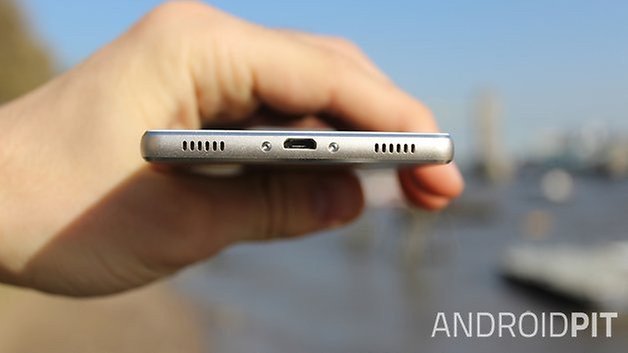
We were very impressed by the crystal-clear voice quality on the Huawei P8, even in challenging environments like the subway. When testing out call quality in a windy environment, the person I phoned actually thought I was at home, and wouldn't believe me when I told him that I was in the windy outdoors (don't worry, I convinced him in the end). Huawei certainly came good on its reputation here as a master of networking.
Huawei P8 camera
The 13MP sensor of the Huawei P8 camera is a solid combination of hardware and software that from our experience looks good, if not exactly world-beating. To help with low-light shots, the camera has a f/2.0 aperture, but also a 'Super Night Mode', which uses software processing to improve low-light shots (similarly to the Honor 6+).
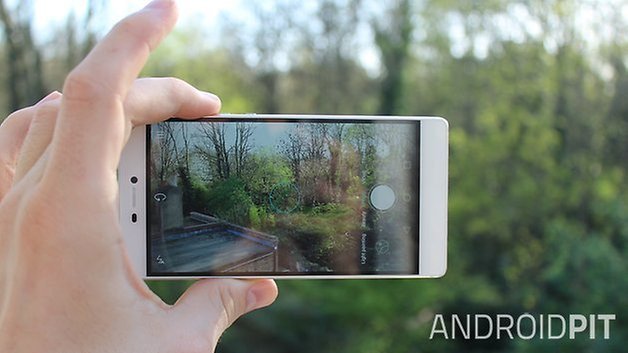
The P8 camera also features OIS (Optical Image Stabilization), allowing it to automatically fix shaky or wonky shots with up to 0.6 degrees of freedom. There is also a 360-degree panorama mode, as well as the handy 'Ultra Snapshot' that we saw on the Ascend Mate 7, which lets you double-press the volume rocker with your phone on standby to quickly take a picture without turning the screen on.
The Huawei P8 camera is of decent quality for a flagship. It does a great job of capturing low-light shots. While pictures tend to come out sharp and with little noise, we were a bit disappointed at the colors of the final images, which looked a little bit washed out.
There are some fun shooting modes to play around with on the Huawei P8 - including time-lapse, full panoramic mode, and 'Light painting' - which lets you capture light trails, car lights, and even star trails in the dark. We certainly had some fun with it.
The front-facing 8MP camera is also a solid offering. Vain selfie-takers will be happy to hear that Huawei's trademark 'Face Beauty' mode now recognizes the phone owners face, and can automatically 'beautify' it in photos based on settings that you choose.
Huawei P8 battery
Powering the Huawei P8 is a 2600mAh battery, which is in line with the recent tendency for flagship phones to come in below 3000mAh. While a year ago we would've said that this was too small to power an octa-core phone, we've seen with the One M9 and Galaxy S6 that this is not the case.
We were promised 1.5 days of normal-intensity use from the Huawei P8 battery before it needed recharging, and one day of heavy use. After our tests, we can confirm that the phone matched up to Huawei's promises. After twelve hours' normal use, during which I took several photos, spent an hour managing emails, surfed the web and even played some Dead Trigger 2, the battery remained above 65 percent. These are impressive figures for what on the face of it seems like quite a small battery.
Huawei P8 technical specifications
Final verdict
Huawei did almost everything right with the P8: the processor is powerful, the price is reasonable, and most of the extra features are well-implemented and useful.
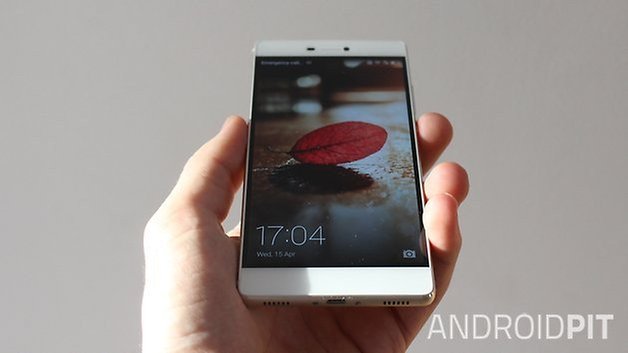
We like how Huawei is looking to make the P8 carve out its own identity among flagship smartphones. With some interesting networking capabilities, a hybrid SIM/microSD slot, and a super-thin aluminum chassis to differentiate itself from its aluminum rivals, we think that the P8 is one to watch.
While we weren't blown away by the quality of the 13MP camera, it does a good job of making up for this by having some excellent features to play around with. The Huawei P8 falls just short of a five-star review due to its camera and UI that isn't always intuitive, but it's still a top choice for those wanting legitimate flagship specs at a much lower price point than similarly powerful phones.
Has our Huawei P8 review swayed you to give this rising Chinese star of smartphones a go? Let us know what you think in the comments.
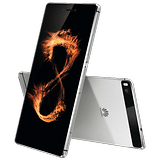
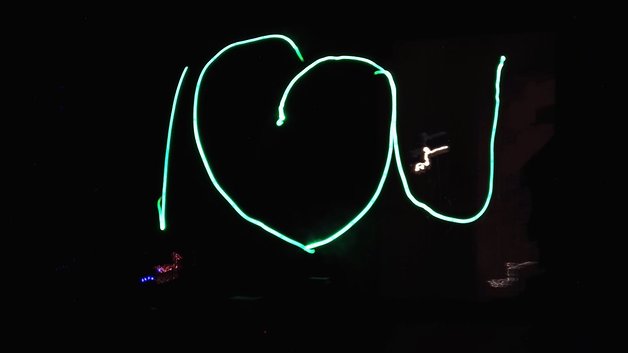
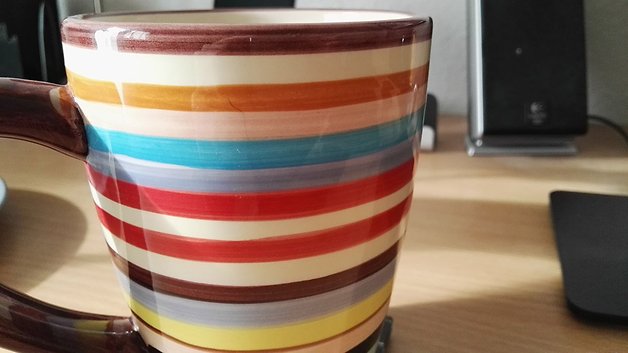
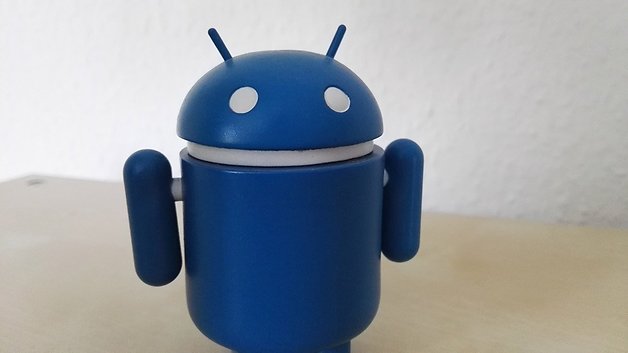
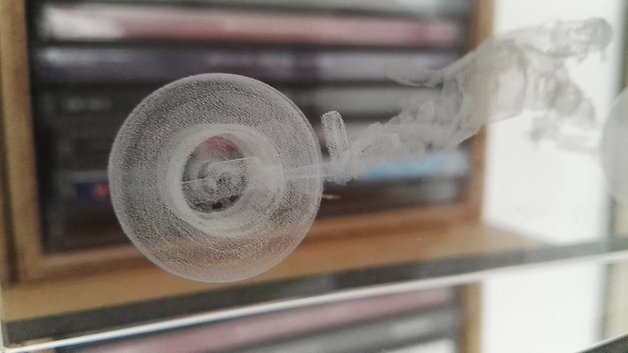
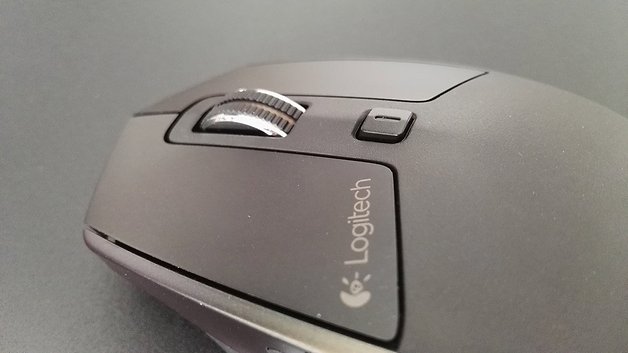
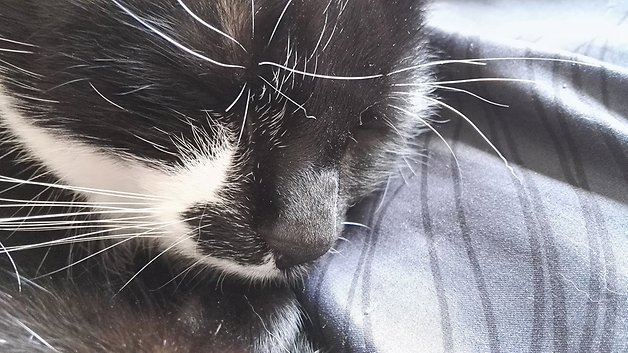
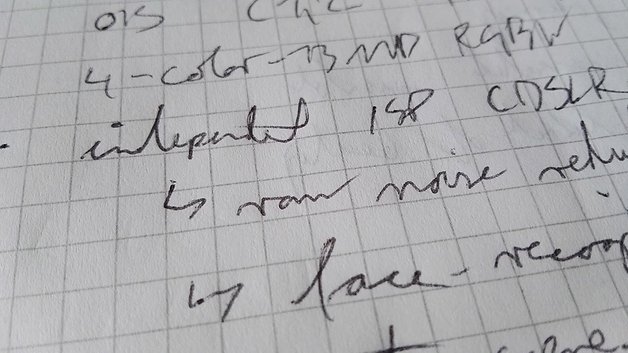
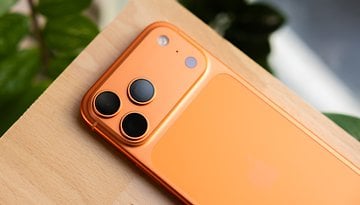
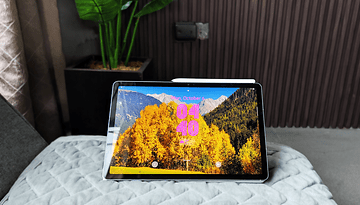

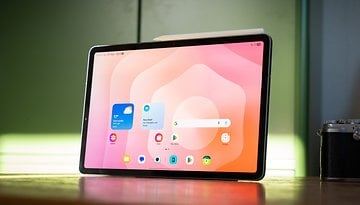
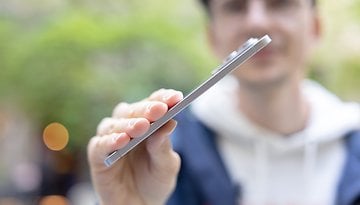
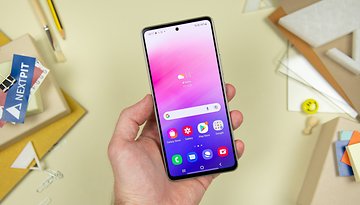
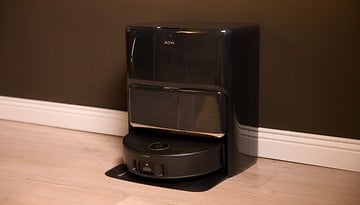
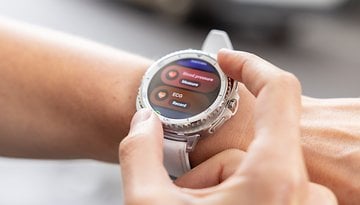
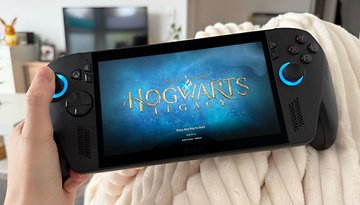

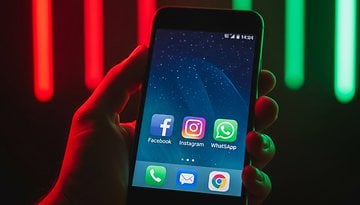
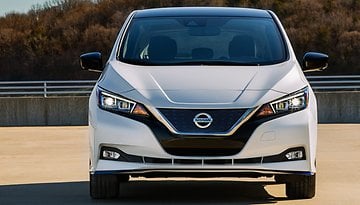


I am intrigued by this phone. I do not buy the latest and greatest, why waist your money. Look at all those poor saps that bought that burn up samsung. Don't get me wrong I LOVE my current samung, but I wait to see who offers what I need for the price I am willing to pay. Doesn't matter model. What matters are the performances for what I require.
Hi, I am looking for a budget smartphone around $100 for myself, it is better if it can has big screen. Do you guys have any good advice?
I almost bought it last Sunday - it had all the international frequency bands (I need it in Europe and Mainland China) and all other bells and whistles I had specified - then I found out from the net that it can't have two SIMs IF I have a SD memory card. I definitely want my data on a removable piece - because the phone dies eventually and how do you get out all your photos and files then. I don't understand why they done that design selection. So I keep to my old dual sim + sd phone without 4G.
Why not try a memory stick and be sure to have an extra fully charged battery or charger. For the price this is a nice phone with out all the bloat.
Washed out colors wtf ?
So why on other reviews say has nice saturated colors???androidauthority.com/huawei-p8-review-604042/
So... paint it.
Is this celly? going to be on T-Mobile?
The previous one was called "Ascend P7", so I think I got the title... Haha.
Great device, also. It's getting a lot of attention.
When can I get it in the Netherlands?